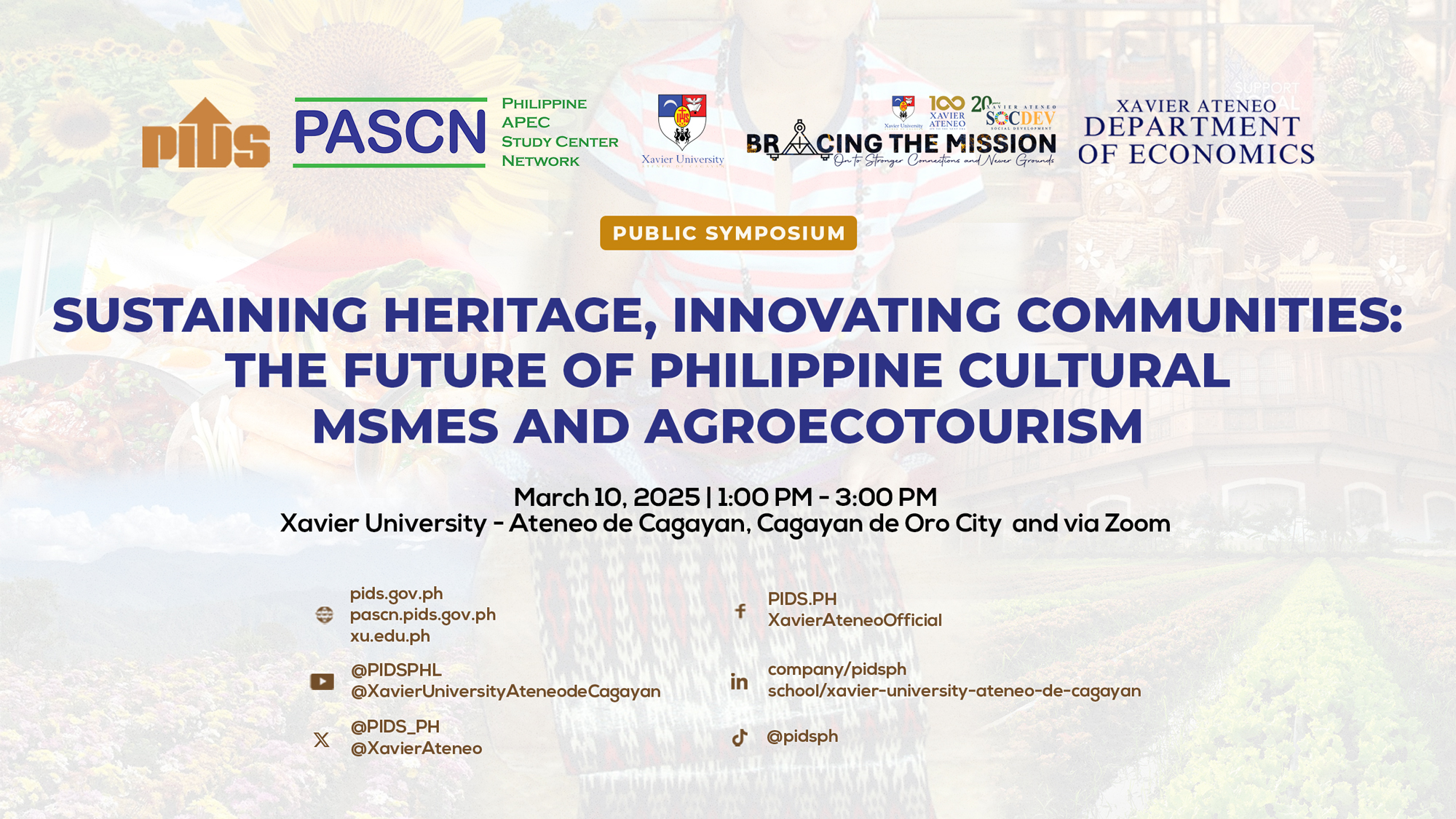As lockdown restrictions ease, micro, small, and medium enterprises (MSMEs) that possess niche specializations and technologies should consider supplying raw materials to larger enterprises, according to a study recommending a “shift to a value-chain approach from a firm-centric approach.”
This approach does away with the challenges presented by direct exportation, said John Paolo R. Rivera, associate director of the Asian Institute of Management’s Dr. Andrew L. Tan Center for Tourism, who presented the findings of the study he co-authored with Brian C. Gozun, former Dean of the Ramon V. del Rosario College of Business at De La Salle University, at a recent symposium organized by the Philippine Institute of Development Studies and the Philippine APEC Study Center Network.
Titled “Navigating the New Normal: Restarting and Rebuilding Global MSMEs,” the virtual event mapped a post-pandemic path for MSMEs. “I prefer to call it a better normal because we can’t call it a new normal, particularly for business models rendered obsolete by the pandemic,” said Mr. Rivera.
“If direct exporting is too gargantuan for MSMEs, indirect exporting, outsourcing, or subcontracting can be an alternative where entrepreneurs provide inputs in the form of raw materials and work-in-progress to other larger domestic businesses who have exporting capabilities and who have access to the global value chain,” recommended the study co-authored by Mr. Rivera.
At the symposium, he added that it is important for entrepreneurs to go digital to normalize peer-to-peer connections, and to take advantage of government-sponsored capacity-building and mentoring programs.
“Capacity-building and mentoring programs should touch on both hard and soft skills, as well as micro- and macro- perspectives,” said Mr. Rivera. Micro-perspectives include crowdfunding, total quality management, and risk management, whereas macro-perspectives referred to familiarity and proficiency in regulatory and economic policies.
“These will allow MSMEs to proficiently and confidently participate in a globalized business environment, not only because risks have been mitigated, but also because they are well-equipped to strengthen their value chain,” he said. “MSMEs are ready, but they need assistance.”
The 2019 List of Establishments of the Philippine Statistics Authority recorded a total of 1,000,506 business enterprises operating in the country. Of these, 995,745 (99.5%) are MSMEs. The top five industry sectors according to the number of MSMEs that year were: wholesale and retail trade; repair of motor vehicles and motorcycles; accommodation and food service activities; manufacturing; other service activities; and financial and insurance activities. A majority of MSMEs can be found in the National Capital Region (NCR), followed by Region 4-A (CALABARZON), and Region 3 (Central Luzon).
To tap global market, MSMEs should digitalize, shift to indirect exports — study












